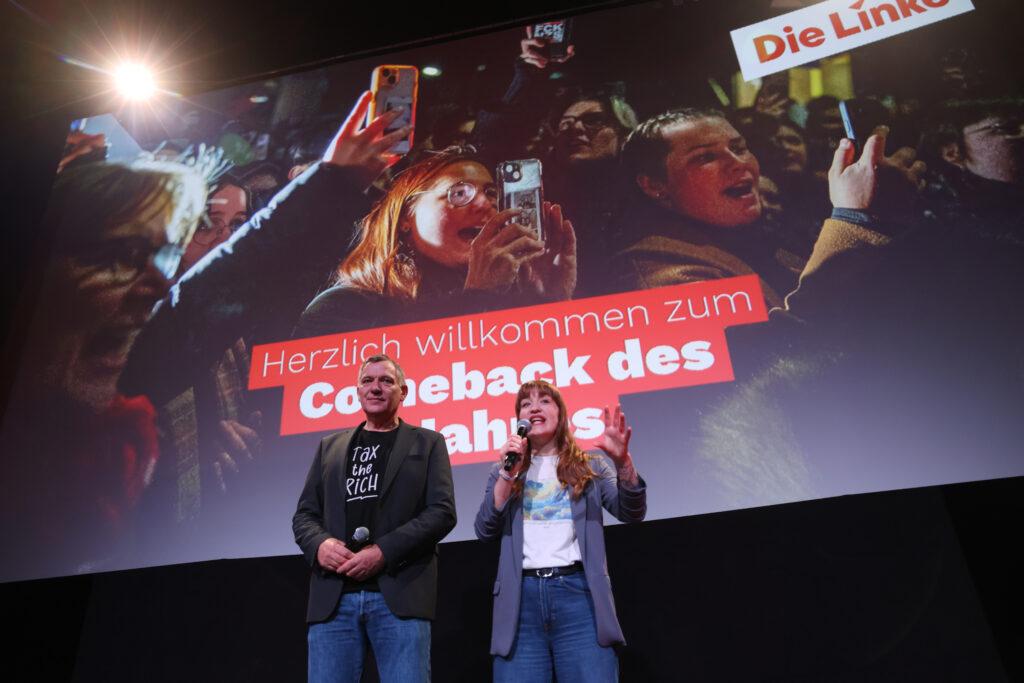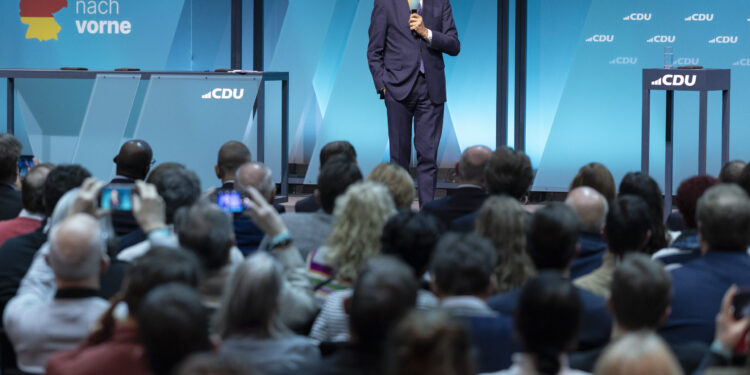To this, he attaches a pro-growth, center-right economic policy, prioritizing reduced social spending, more deregulation, tax cuts — particularly for the middle class — and generally more pro-business reforms. Though he has walked back on his support for re-opening Germany’s nuclear power plants — arguing that doing so wouldn’t be practical or economical — he supports loosening Germany’s inflexible green enemy transition policies. In Mr. Merz’s view, Germany’s transition to green energy should be largely market-driven rather than forced by policy, and he supports the development of new nuclear technology, such as small modular reactors.
Germany’s multiparty system means that outright majorities never occur, and winning 30 percent of the vote would likelybe enough for Mr. Merz to form a stable coalition government; though even marginal underperformance could cause problems. An American reader might assume that Mr. Merz would partner with the AfD and create a strong majority right-wing government, but doing so would cause massive national and political problems. In January, Mr. Merz collaborated with the AfD to pass a non-binding anti-immigration motion, breaking a long-held post-war norm against “normalizing” far-right parties, prompting nationwide protests. Though a coalition government might work on paper, doing so would be utterly unstable, with revolts and resignations within his party and a nation beset with protests.
Unsurprisingly, Mr. Merz has repeatedly insisted that he would not form a coalition government with the AfD, but such a refusal may leave him in a precarious position, choosing between an ineffectual minority coalition government or forming an unstable majority coalition with several different parties.
The two most viable partners are not particularly popular. Chancellor Scholz’s SPD is polling at a paltry 15 percent — the lowest in modern history — but keeping them in power would contradict Mr. Merz’s image of pushing Germany in a new, pro-growth direction. The Greens are no better, as their urban progressive support — with 12 percent in the polls — is outweighed by their national unpopularity due to frustrations with energy prices and overregulation.
 Heidi Reichinnek and Jan van Aken, lead candidates of the leftist Die Linke political party, speak to supporters at the final Die Linke election rally ahead of snap federal parliamentary elections on February 21, 2025 at Berlin, Germany. Sean Gallup/Getty Images
Heidi Reichinnek and Jan van Aken, lead candidates of the leftist Die Linke political party, speak to supporters at the final Die Linke election rally ahead of snap federal parliamentary elections on February 21, 2025 at Berlin, Germany. Sean Gallup/Getty Images
The pro-business, pro-deregulation Free Democrats party seems like a natural fit, but coalition governments can only be formed with parties earning up to 5 percent of the vote, and they might miss this, as they currently poll at 4.5 percent. Then there are the left-leaning Sahra Wagenknecht Alliance and Die Linke parties, polling at 6 and 8 percent respectively, whose anti-austerity, anti-Ukraine policies don’t match well with Mr. Merz’s center-right Christian Democratic Union remaining the front-runner.
The coalition forming here is difficult to do. In order to form a government, he may need to sacrifice some of his more right-leaning positions, particularly on spending and migration. These are issues where a majority of Germans lean conservative, instantly making the government less popular; and backing down on them for the sake of party politics would instantly provide rhetorical ammunition for the AfD, whose new-found political success will give them the power to block much legislation.
Regardless of the exact outcome, the election marks a notable rejection of the centrist political establishment and a shift to the right for Germany, with a focus on freer markets and tighter borders.
Source link : http://www.bing.com/news/apiclick.aspx?ref=FexRss&aid=&tid=67b9ada6ec1248b69571a39043cb68dd&url=https%3A%2F%2Fwww.nysun.com%2Farticle%2Fgermans-head-to-the-polls-in-europes-most-important-election-this-year&c=3936429795700612218&mkt=de-de
Author :
Publish date : 2025-02-22 01:24:00
Copyright for syndicated content belongs to the linked Source.



